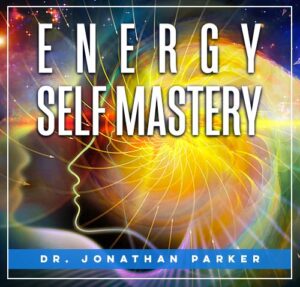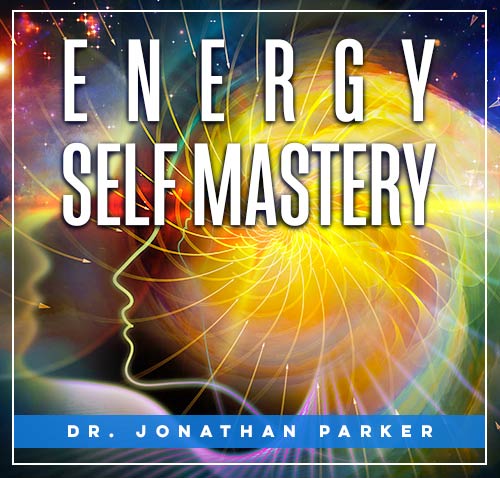Best Energy Balance Practices

Looking for more amazing products? Check out our online store and explore our collection here! Happy shopping!
Before diving in, please note: This post is for informational purposes only. If you’d like to know more about how we approach topics, feel free to check out our friendly Disclaimer Page.
Hey there, amazing readers! 
We’re committed to delivering quality posts, and your support (even just sticking around despite the ads) means everything to us. So, bear with us, and thanks for helping us keep the good vibes rolling. Now, on to the fun stuff!
TRANSLATE BUTTON AT THE END OF THE ARTICLE
Understanding Energy Balance
Energy balance is the equilibrium between the calories you consume through food and drinks and the calories your body expends through physical activity and metabolic processes.
When your caloric intake matches your energy expenditure, you are said to be in energy balance.
This balance is crucial for overall health and well-being, as it helps maintain a healthy weight, supports proper bodily functions, and provides the necessary energy for daily activities.
Ensuring that you are in a state of energy balance requires a basic understanding of the calories you consume and burn.
Calories are units of energy found in food and beverages, and they fuel your body’s functions.
If you consistently consume more calories than you burn, you will gain weight.
Conversely, if you burn more calories than you consume, you will lose weight.
Achieving energy balance involves striking a harmonious relationship between these two factors.
Importance of Energy Balance
Maintaining energy balance is essential for various aspects of health, including weight management, metabolism, and overall vitality.
When you are in energy balance, your body can efficiently regulate energy levels, support optimal organ function, and sustain a healthy weight.
On the other hand, an imbalance in energy intake and expenditure can lead to weight gain or loss, metabolic disturbances, and an increased risk of chronic diseases such as diabetes and heart disease.
Achieving and sustaining energy balance is crucial for promoting overall well-being and preventing health issues.
By paying attention to the calories you consume and expend, you can better control your weight, improve your energy levels, and enhance your quality of life.
Making conscious choices about your diet and physical activity levels can help you achieve a healthy energy balance that supports your body’s needs and goals.
Caloric Intake vs. Expenditure
The key to achieving energy balance lies in striking a harmonious relationship between your caloric intake and expenditure.
To maintain a healthy weight and support your body’s energy needs, it is important to be mindful of the calories you consume and burn each day.
Understanding your basal metabolic rate (BMR)—the number of calories your body needs to function at rest—and factoring in your activity level can help you determine your daily caloric needs.
Balancing caloric intake with expenditure involves monitoring your food choices, portion sizes, and physical activity levels.
Keeping track of your calorie intake through food journaling or using a calorie-tracking app can help you stay aware of your eating habits and make adjustments as needed.
Additionally, incorporating regular exercise and movement into your daily routine can help increase your energy expenditure and support a healthy energy balance.
Tips for Achieving Energy Balance
Achieving and maintaining energy balance requires a combination of mindful eating habits, regular physical activity, and an awareness of your body’s energy needs.
Here are some tips to help you achieve optimal energy balance:
Eat a balanced diet rich in nutrient-dense foods such as fruits, vegetables, whole grains, lean proteins, and healthy fats.
Pay attention to portion sizes and avoid overeating by listening to your body’s hunger and fullness cues.
Stay hydrated by drinking plenty of water throughout the day to support your body’s metabolic processes.
Engage in regular physical activity that includes a mix of cardiovascular exercise, strength training, and flexibility exercises.
Monitor your weight and energy levels to track changes and make adjustments to your diet and exercise routine as needed.
Balancing Macros for Optimal Energy
In addition to monitoring your overall caloric intake, it is essential to pay attention to the balance of macronutrients—carbohydrates, proteins, and fats—in your diet.
Each macronutrient plays a unique role in providing energy and supporting various bodily functions.
Carbohydrates are the body’s primary source of fuel, proteins are essential for muscle repair and growth, and fats are necessary for hormone production and cell function.
Master your Energy and Awaken Your Spirit – start your journey here.
Balancing macros for optimal energy involves consuming a mix of carbohydrates, proteins, and fats in appropriate proportions.
While individual macronutrient needs vary based on factors such as age, gender, activity level, and health goals, a general guideline is to aim for a diet that consists of around 45-65% carbohydrates, 10-35% protein, and 20-35% fat.
By incorporating a variety of foods that provide these macronutrients, you can support your body’s energy needs and promote overall health.
The Role of Physical Activity
Physical activity plays a vital role in achieving and maintaining energy balance.
Regular exercise not only helps you burn calories and support weight management but also enhances your overall health and well-being.
Engaging in a mix of cardiovascular, strength, and flexibility exercises can boost your metabolism, increase energy expenditure, and improve your physical fitness.
To support energy balance through physical activity, aim to incorporate at least 150 minutes of moderate-intensity aerobic exercise or 75 minutes of vigorous-intensity aerobic exercise per week, along with two or more days of strength training.
Additionally, find activities that you enjoy and can sustain long term to make exercise a regular part of your routine.
By combining a balanced diet with regular physical activity, you can optimize your energy balance and support your body’s needs.
Monitoring Your Energy Levels
Monitoring your energy levels is essential for understanding how your body responds to changes in diet, exercise, and lifestyle factors.
Paying attention to signs of fatigue, hunger, and mood fluctuations can help you identify imbalances in your energy levels and make adjustments to support optimal energy balance.
Keeping a journal of your energy levels throughout the day can provide valuable insights into patterns and trends that may impact your overall well-being.
By tracking your energy levels and noting how they fluctuate based on factors such as meal timing, food choices, exercise intensity, and sleep quality, you can better tailor your habits to support sustained energy throughout the day.
Additionally, listening to your body’s cues and responding appropriately—whether it’s by eating when hungry, resting when fatigued, or engaging in physical activity when energized—can help you maintain a healthy energy balance and feel your best.
Choosing Nutrient-Dense Foods
One of the key components of achieving energy balance is selecting nutrient-dense foods that provide essential vitamins, minerals, and macronutrients without excess calories.
Nutrient-dense foods are those that offer a high concentration of nutrients relative to their calorie content, making them valuable sources of energy and supporting overall health.
By prioritizing nutrient-dense foods in your diet, you can optimize your energy intake and promote well-being.
Choose nutrient-dense foods such as fruits, vegetables, whole grains, lean proteins, and healthy fats to fuel your body with essential nutrients and support your energy needs.
These foods are rich in vitamins, minerals, antioxidants, and fiber, which can help regulate metabolism, support immune function, and enhance overall vitality.
By incorporating a variety of nutrient-dense foods into your meals and snacks, you can nourish your body and maintain a healthy energy balance.
Avoiding Empty Calories
In contrast to nutrient-dense foods, empty calories are foods and beverages that provide little to no nutritional value while contributing excess calories to your diet.
Consuming empty calories can lead to weight gain, nutrient deficiencies, and imbalances in energy intake.
Common sources of empty calories include sugary drinks, processed snacks, fried foods, and desserts high in added sugars and unhealthy fats.
To avoid empty calories and support a healthy energy balance, focus on limiting foods and drinks that offer little nutritional benefit.
Instead, opt for nutrient-rich choices that provide essential nutrients and sustained energy.
By being mindful of your food choices and opting for whole, minimally processed foods, you can reduce your intake of empty calories and better support your body’s energy needs and overall health.
Incorporating Mindful Eating
Practicing mindful eating can help you achieve and maintain energy balance by fostering a greater awareness of your food choices, hunger cues, and eating habits.
Mindful eating involves paying attention to the sensory experience of eating, such as the taste, texture, and aroma of food, as well as your hunger and fullness signals.
By tuning into these cues, you can make more intentional choices about when, what, and how much you eat.
To incorporate mindful eating into your routine, try to eat without distractions, savor each bite, and listen to your body’s hunger and fullness signals.
Avoid eating in front of screens or while multitasking, as this can lead to mindless eating and overconsumption.
By being present and attentive during meals and snacks, you can better enjoy your food, regulate your appetite, and support a healthy energy balance.
Developing Sustainable Habits
Building sustainable habits is essential for maintaining energy balance in the long term and supporting your overall health and well-being.
Sustainable habits are those that you can consistently maintain and integrate into your daily routine without feeling deprived or overwhelmed.
By developing habits that align with your preferences, goals, and lifestyle, you can create a sustainable framework for achieving and sustaining energy balance.
To develop sustainable habits that support energy balance, focus on making gradual changes, setting realistic goals, and finding activities that bring you joy and fulfillment.
Whether it’s trying new recipes, exploring different forms of exercise, or prioritizing rest and relaxation, seek out habits that align with your values and promote a balanced approach to health.
By cultivating sustainable habits that support your energy needs and well-being, you can create a lasting foundation for optimal health and vitality.
Seeking Professional Guidance
If you’re struggling to achieve or maintain energy balance, or if you have specific health goals that require tailored guidance, seeking professional help can be beneficial.
Registered dietitians, nutritionists, personal trainers, and other healthcare providers can offer expert advice, support, and resources to help you navigate the complexities of energy balance and make informed choices about your diet and lifestyle.
Professional guidance can help you develop a personalized plan that takes into account your unique needs, preferences, and goals.
Whether you’re looking to lose weight, improve your energy levels, or optimize your nutrition for performance, working with a qualified professional can provide you with the knowledge and tools you need to succeed.
By seeking guidance from experts in the field of health and wellness, you can unlock the secrets to achieving and maintaining a healthy energy balance that supports your overall well-being.
Conclusion
In conclusion, achieving and maintaining energy balance is essential for supporting overall health, weight management, and vitality.
By understanding the relationship between caloric intake and expenditure, balancing macros for optimal energy, incorporating physical activity, and making mindful food choices, you can create a sustainable framework for achieving energy balance.
Monitoring your energy levels, choosing nutrient-dense foods, avoiding empty calories, and developing sustainable habits are key components of maintaining a healthy energy balance.
Seeking professional guidance when needed can provide you with the support and resources to navigate the complexities of energy balance and achieve your health goals.
By implementing these practices and strategies, you can optimize your energy balance, support your body’s needs, and enhance your quality of life.

The Enlightenment Journey is a remarkable collection of writings authored by a distinguished group of experts in the fields of spirituality, new age, and esoteric knowledge.
This anthology features a diverse assembly of well-experienced authors who bring their profound insights and credible perspectives to the forefront.
Each contributor possesses a wealth of knowledge and wisdom, making them authorities in their respective domains.
Together, they offer readers a transformative journey into the realms of spiritual growth, self-discovery, and esoteric enlightenment.
The Enlightenment Journey is a testament to the collective expertise of these luminaries, providing readers with a rich tapestry of ideas and information to illuminate their spiritual path.
Our Diverse Expertise
While our primary focus is on spirituality and esotericism, we are equally passionate about exploring a wide range of other topics and niches 

To ensure we provide the most accurate and valuable insights, we collaborate with trusted experts in their respective domains 
Our blog originally focused on spirituality and metaphysics, but we’ve since expanded to cover a wide range of niches. Don’t worry—we continue to publish a lot of articles on spirituality! Frequently visit our blog to explore our diverse content and stay tuned for more insightful reads.
Hey there, amazing reader! 
Check out our store here and take a peek at some of our featured products below! Thanks for being awesome!













